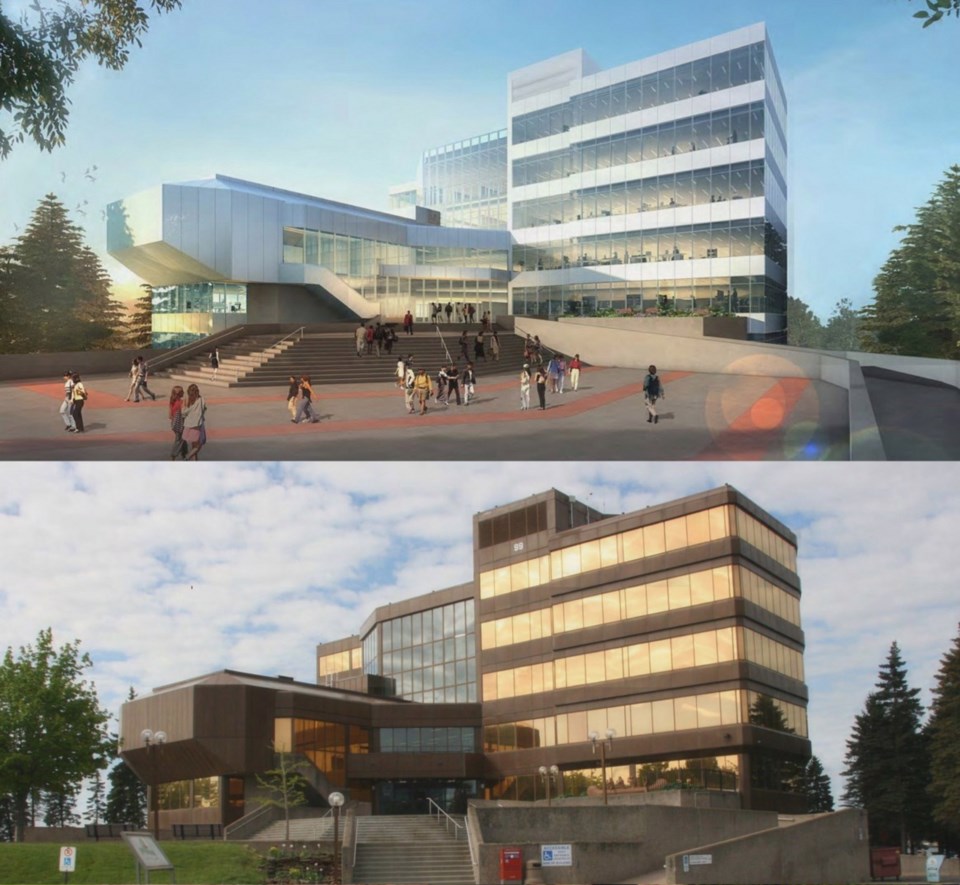City officials planning a major facelift at the Civic Centre are keeping a close eye on developments in the North Kensington area of West London, England, where the death toll in a public housing tower fire one week ago has reached 79.
The $6.5 million project, approved by Sault Ste. Marie City Council in February, involves sheathing the 42-year-old downtown landmark in white aluminum composite panels.
Media reports on the London fire have paid particular attention to exterior aluminum composite cladding installed just last year.
Witnesses reported the fire spread rapidly up the building's exterior and experts said that air cavities within the cladding panels can allow them to function as a chimney.
Municipal records show that North Kensington's Grenfell Tower was sheathed with two kinds of cladding: Arconic's Reynobond (aluminium sheets with a polyethylene core) and the same company's Reynolux aluminium sheets.
The Reynobond cladding reportedly cost £22 a square metre, compared to £24 for a more fire-resistant sister product that wasn't used on the Grenfell Tower.
Don Elliott, the City of Sault Ste. Marie's director of engineering, tells SooToday that the city's facelift consultants (Morrison Hershfield Ltd. engineers and RDHA Architects) have not yet determined the brand of cladding to be used here.
"It will be a composite aluminum cladding that will be fully compliant with the building code, including the fire code and should also achieve a very durable long-lasting finish," Elliot said.
"It will meet or exceed the performance of the existing cladding systems with respect to fire performance and durability."
"Note that we are tracking the Grenfell Tower fire and its possible implications in the Canadian market."
The plastic-cored cladding involved in the Grenfell tragedy reportedly may be used in Ontario buildings that are less than seven storeys tall, but if the building is more than three storeys, it must have an automatic sprinkler system.
Once the tender price is known, the project will be brought back to City Council for approval of financing options and awarding of the construction contract.
The project is considered necessary because of corrosion, seal failures and air and water barrier deficiencies.
"I want to make it clear that the renovations are not happening for aesthetic reasons," Mayor Christian Provenzano said in February.
"It’s being made because the current state of the windows and cladding present a health and safety issue. An asset review study that was done in 2014 recommended making the replacements as soon as possible, but no later than by 2018. It is a project that has to happen and we would be negligent to try and postpone it any longer," the mayor said.
"We are going to use long-term debt to pay for the majority of the costs to replace the windows and cladding. To me, this is a prudent decision because the city carries exceptionally low debt and we are still in a very favourable environment for interest rates. Furthermore, an annual stream of funding has already been identified within the 2017 budget to finance the loan. This project is not increasing the budget or increasing your taxes."
Dedicated on Dec. 16, 1974 and opened for business on May 5, 1975, Sault Ste. Marie's Civic Centre was built on land reclaimed from the St. Marys River at the site of the old ferry dock.
The Civic Centre facelift is to be completed by the end of 2018.
